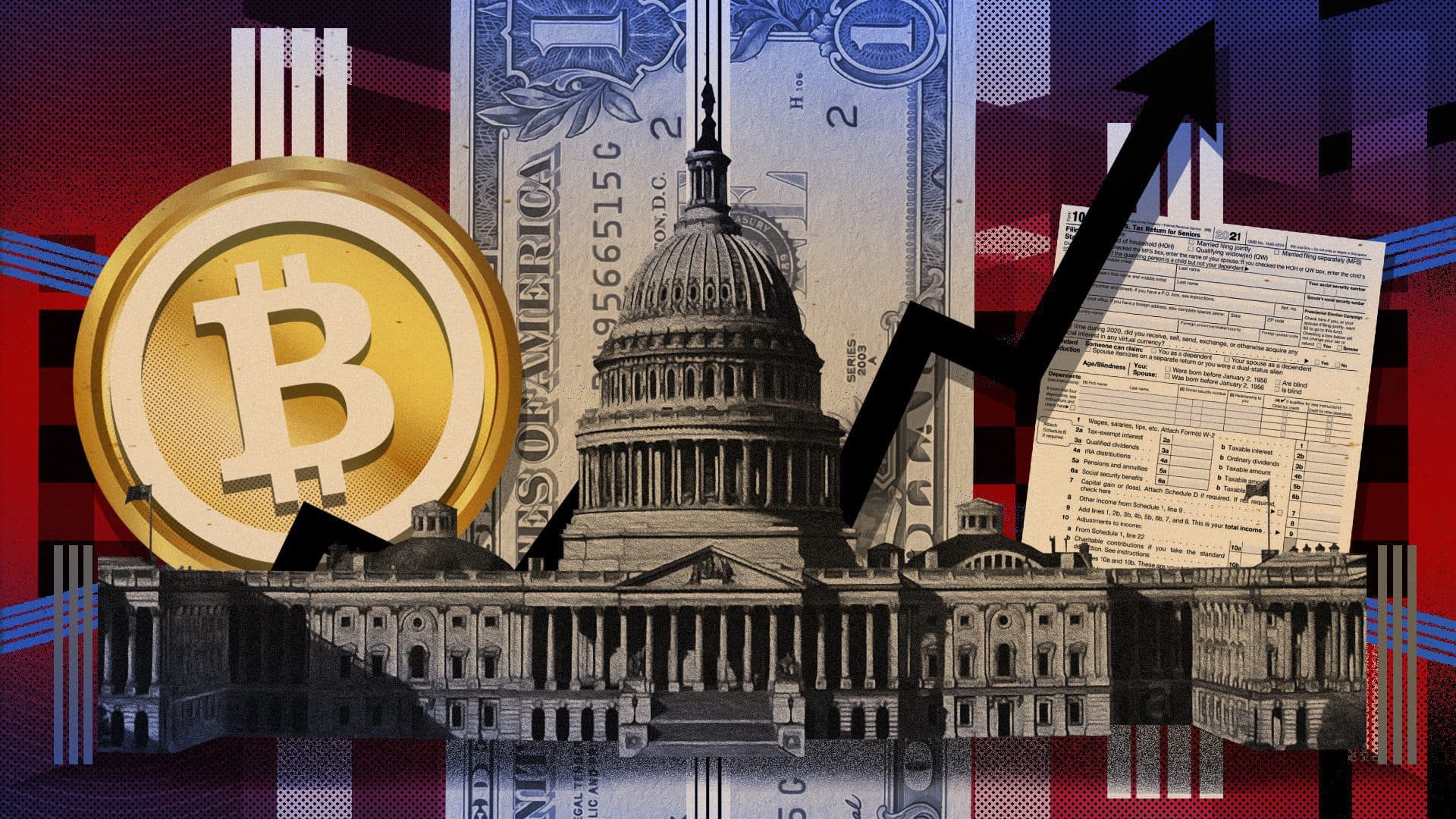New Crypto Bill Suggests Unrealized Staking Gains Should Not Be Taxed
As US law currently stands, stakers and miners are required to pay taxes on rewards such as income, regardless of if the tokens were sold or traded

Blockworks exclusive art by BY AXEL RANGEL
- Lummis/Gillibrand bill clarifies that unrealized staking and mining gains should not be taxed as income
- The bill, if passed, would impact a tax law one Tennessee couple has been fighting for over a year
The long-awaited US digital asset bill introduced earlier this month provides clarity that could change the outcome of one legal battle currently underway.
The Responsible Financial Innovation Act, co-sponsored by Sens. Cynthia Lummis, R-Wyo., and Kirsten Gillibrand, D-N.Y., states that miners and stakers would only have to pay income taxes on realized rewards — when the associated digital assets are sold.
Income generated by digital asset mining and staking “shall not be included in the gross income of the taxpayer” until the taxpayer sells or trades the assets, the bill says.
The clause would change a tax law one Nashville couple has been fighting for over a year.
In May 2021, Joshua and Jessica Jarrett requested a refund of $3,293 of income tax paid in 2019 for the receipt of 8,876 Tezos tokens, according to a legal complaint filed on May 26, 2021, with the US District Court for the Middle District of Tennessee. The couple also sought a $500 increase in tax credits for lost income.
Tokens attained through proof-of-stake protocols are taxpayer-created property and should not be taxed until sold or exchanged, the Jarretts argued. The complaint claims that nothing under United States law, nor IRS code and regulations, allows taxpayer-created property to be taxed as income.
The IRS offered the Jarretts a refund in December. The couple refused, choosing instead to continue to fight the matter in court. In March, the Department of Justice urged a judge to dismiss the case. A bench trial is currently set for March 2023.
As the law currently stands, stakers and miners are required to pay taxes on rewards as if they were income — the law does not consider if the tokens were sold or traded.
“This has been actually catastrophic for some clients that stake, for example, UST and via some of these very high-yield staking platforms,” Andrew Gordon, tax attorney and president of Gordon Law Group, said. “You are paying tax on those rewards at the fair market value as they’re coming in, not when you sell it, but as it comes in.”
This bill, if passed, Gordon said, would create a strong incentive to bring miners and stakers to the US.
The crypto bill now faces a lengthy vetting process, with it next moving into committee. Gillibrand serves on the agriculture committee, which has oversight of the Commodities Futures Trading Commission, and Lummis serves on the banking committee, which oversees the SEC.
Get the news in your inbox. Explore Blockworks newsletters:
- The Breakdown: Decoding crypto and the markets. Daily.
- 0xResearch: Alpha in your inbox. Think like an analyst.






